18 start with G start with G
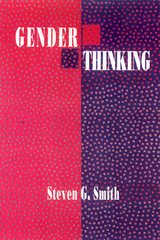
How can we accept the gender system in view of its ills? Yet, are we really at liberty to abolish gender differences, "when the gender system gives us benchmarks of personal identity and worth along with primary channels in which to pursue the rewards of love?" With this double question, Steven G. Smith introduces his inquiry into the idea of gender and how it is implicated in love, respect, equality, and personal character. Gender Thinking is the first comprehensive philosophical exploration of the concept of gender Asking the question, what is gender?—that is, what sort of thing do we take femininity and masculinity to be?—Smith considers how gender thinking is interwoven with ideas about human nature. He suggests ways in which ideas about race, class, culture age, temperament, and sexual orientation can be understood from clues found in gender thinking. And he calls for a renegotiated procreative partnership between women and men as the key to the redemption of gender.

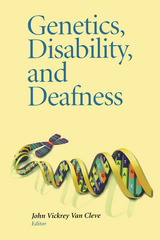
Pulitzer Prize-winning author Louis Menand begins this wide-ranging volume with an essay that extols diversity and warns of the dangers of modifying the human genome. Nora Groce reviews the ways that societies have defined disability and creates an interpretive framework for discussing the relationship between culture and disability.
In essays devoted to historical perspective, Brian H. Greenwald comments upon the real “toll” taken by A. G. Bell’s insistence upon oralism, while Joseph J. Murray weighs the nineteenth-century debate over whether deaf-deaf marriages should be encouraged. John S. Schuchman’s chilling account of deafness and eugenics in the Nazi era adds wrenching reinforcement to the impetus to include disabled people in genetics debates.
Mark Willis offers an intensely personal reflection on the complexities of genetic alteration, addressing both his heart condition and his blindness in surprisingly different ways. Anna Middleton extends Willis’s concepts in her discussion of couples currently considering the use of genetic knowledge and technology to select for or against a gene that causes deafness.
In the part on the science of genetics, Orit Dagan, Karen B. Avraham, Kathleen S. Arnos, and Arti Pandya clarify the choices presented by genetic engineering, and geneticist Walter E. Nance emphasizes the importance of science in offering individuals knowledge from which they can fashion their own decisions. In the concluding section, Christopher Krentz raises moral questions about the ever-continuing search for human perfection, and Michael Bérubé argues that disability should be considered democratically to ensure full participation of disabled people in all decisions that might affect them.

This book examines why physicians are often surprisingly reluctant to follow guidelines for treating patients based on research data. It assesses the merits of these concerns—which include worries about legal liability, financial incentives, the scientific validity of the data, and the objectivity of the issuer of the guidelines. It also proposes ways of developing more useful data and more effective guidelines that would reduce their objections.

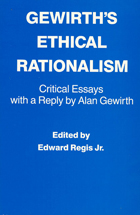

The Global Face of Public Faith addresses the hotly debated question of the role religion should play in politics in both the American and international contexts. It engages the fears that public religion threatens American democracy and could lead to a global clash of civilizations and new wars of religion. It analyzes how Christianity can attain common ground with other religious communities, thus becoming a force for peace and human rights. The separation of church from state need not mean the privatization of religion. Religious engagement in public life can strengthen civic life by encouraging active citizen participation that promotes both justice and peace. The question of religion and politics should thus become an argument about how faith becomes public, not whether it does. Religious communities, Christianity in particular, should be vigorous advocates of human rights, democratic governance, and economic development worldwide. In so doing, they will also become peacemakers.
David Hollenbach is a calm voice of reason in a chaotic world, with an eye that sees beyond national horizons to where human needs and human rights converge. He is convinced that religious traditions can find common ground—through the use of rights and rights language. The Global Face of Public Faith reinforces his commitment to confronting such issues as poverty and economic development, globalism, and interreligious dialogue. He focuses here on faith and the Catholic tradition in politics; the role of the church in American public life; and the wider issues of global challenges and ethics—in a search for a common set of moral standards and a international ethic through a commitment to universal human rights. While not denying the difficulties of forging such a consensus, he nonetheless sees the possibility for justice, and reasons for hope. And hope is something the world can always use.
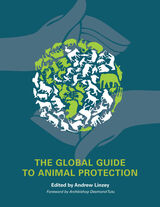
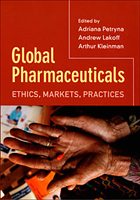
Whether considering how American drug companies seek to create a market for antidepressants in Japan, how Brazil has created a model HIV/AIDS prevention and treatment program, or how the urban poor in Delhi understand and access healthcare, these essays illuminate the roles of corporations, governments, NGOs, and individuals in relation to global pharmaceuticals. Some essays show how individual and communal identities are affected by the marketing and availability of medications. Among these are an exploration of how the pharmaceutical industry shapes popular and expert understandings of mental illness in North America and Great Britain. There is also an examination of the agonizing choices facing Ugandan families trying to finance AIDS treatment. Several essays explore the inner workings of the emerging international pharmaceutical regime. One looks at the expanding quest for clinical research subjects; another at the entwining of science and business interests in the Argentine market for psychotropic medications. By bringing the moral calculations involved in the production and distribution of pharmaceuticals into stark relief, this collection charts urgent new territory for social scientific research.
Contributors. Kalman Applbaum, João Biehl, Ranendra K. Das, Veena Das, David Healy, Arthur Kleinman, Betty Kyaddondo, Andrew Lakoff, Anne Lovell, Lotte Meinert, Adriana Petryna, Michael A. Whyte, Susan Reynolds Whyte

Debates over health care have focused for so long on economics that the proper goals for medicine seem to be taken for granted; yet problems in health care stem as much from a lack of agreement about the goals and priorities of medicine as from the way systems function. This book asks basic questions about the purposes and ends of medicine and shows that the answers have practical implications for future health care delivery, medical research, and the education of medical students.
The Hastings Center coordinated teams of physicians, nurses, public health experts, philosophers, theologians, politicians, health care administrators, social workers, and lawyers in fourteen countries to explore these issues. In this volume, they articulate four basic goals of medicine — prevention of disease, relief of suffering, care of the ill, and avoidance of premature death — and examine them in light of the cultural, political, and economic pressures under which medicine functions. In reporting these findings, the contributors touch on a wide range of diverse issues such as genetic technology, Chinese medicine, care of the elderly, and prevention and public health.
The Goals of Medicine clearly demonstrates the importance of clarifying the purposes of medicine before attempting to change the economic and organizational systems. It warns that without such examination, any reform efforts may be fruitless.

Discussions and debates over the medical use of stem cells and cloning have always had a religious component. But there are many different religious voices. This anthology on how religious perspectives can inform the difficult issues of stem cell research and human cloning is essential to the discussion. Contributors reflect the spectrum of Christian responses, from liberal Protestant to evangelical to Roman Catholic. The noted moral philosopher, Laurie Zoloth, offers a Jewish approach to cloning, and Sondra Wheeler contributes her perspective on both Jewish and Christian understandings of embryonic stem cell research.
In addition to the discussions found here, God and the Embryo includes a series of official statements on stem cell research and cloning from religious bodies, including the Roman Catholic Church, the Orthodox Church in America, the United Methodist Church, the Southern Baptist Convention, the United Church of Christ, the Presbyterian Church (USA), and the Union of Orthodox Jewish Congregations of America and the Rabbinical Council of America. "Human Cloning and Human Dignity: An Ethical Inquiry," from the statement of the President's Council on Bioethics, concludes the book.
The debates and the discussions will continue, but for anyone interested in the nuances of religious perspectives that make their important contributions to these ethically challenging and important dialectics, God and the Embryo is an invaluable resource.
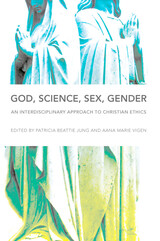
God, Sex, Science, Gender: An Interdisciplinary Approach to Christian Ethics is a timely, wide-ranging attempt to rescue dialogues on human sexuality, sexual diversity, and gender from insular exchanges based primarily on biblical scholarship and denominational ideology. Too often, dialogues on sexuality and gender devolve into the repetition of party lines and defensive postures, without considering the interdisciplinary body of scholarly research on this complex subject. This volume expands beyond the usual parameters, opening the discussion to scholars in the humanities, social sciences, and natural sciences to foster the development of Christian sexual ethics for contemporary times.
Essays by prominent and emerging scholars in the fields of anthropology, sociology, psychology, philosophy, literary studies, theology, and ethics reveal how faith and reason can illuminate our understanding of human sexual and gender diversity. Focusing on the intersection of theology and science and incorporating feminist theory, God, Science, Sex, Gender is a much-needed call for Christian ethicists to map the origins and full range of human sexual experience and gender identity. Essays delve into why human sexuality and gender can be so controversial in Christian contexts, investigate the complexity of sexuality in humans and other species, and reveal the implications of diversity for Christian moral theology.
Contributors are Joel Brown, James Calcagno, Francis J. Catania, Pamela L. Caughie, Robin Colburn, Robert Di Vito, Terry Grande, Frank Fennell, Anne E. Figert, Patricia Beattie Jung, Fred Kniss, John McCarthy, Jon Nilson, Stephen J. Pope, Susan A. Ross, Joan Roughgarden, and Aana Marie Vigen.
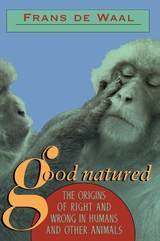
To observe a dog's guilty look.
to witness a gorilla's self-sacrifice for a wounded mate, to watch an elephant herd's communal effort on behalf of a stranded calf--to catch animals in certain acts is to wonder what moves them. Might there he a code of ethics in the animal kingdom? Must an animal be human to he humane? In this provocative book, a renowned scientist takes on those who have declared ethics uniquely human Making a compelling case for a morality grounded in biology, he shows how ethical behavior is as much a matter of evolution as any other trait, in humans and animals alike.
World famous for his brilliant descriptions of Machiavellian power plays among chimpanzees-the nastier side of animal life--Frans de Waal here contends that animals have a nice side as well. Making his case through vivid anecdotes drawn from his work with apes and monkeys and holstered by the intriguing, voluminous data from his and others' ongoing research, de Waal shows us that many of the building blocks of morality are natural: they can he observed in other animals. Through his eyes, we see how not just primates but all kinds of animals, from marine mammals to dogs, respond to social rules, help each other, share food, resolve conflict to mutual satisfaction, even develop a crude sense of justice and fairness.
Natural selection may be harsh, but it has produced highly successful species that survive through cooperation and mutual assistance. De Waal identifies this paradox as the key to an evolutionary account of morality, and demonstrates that human morality could never have developed without the foundation of fellow feeling our species shares with other animals. As his work makes clear, a morality grounded in biology leads to an entirely different conception of what it means to he human--and humane.

This appraisal of two of the most fundamental terms in the moral language of Thomas Aquinas draws on the contemporary moral distinction between the goodness of a person and the rightness of a person's living. Keenan thus finds that Aquinas's earlier writings do not permit the possibility of such a distinction. But in his mature works, specifically the Summa Theologiae, Thomas describes the human act of moral intentionality, and even the virtues in a way analogous to our use of the term moral rightness. To Thomas, only the virtue of charity expresses moral goodness. And, although Thomas describes vices and sin as wrong conduct, he never really develops a description for moral badness.Keenan compels us to carefully examine Thomas's central moral concepts and to measure them against contemporary standards for meaning and correctness. As a result, any student of Thomas will find here a forceful argument that his notion of the good is considerably different from ours. Similarly, ethicists and moral theologians will find in the Thomas presented here a consistent-virtue ethicist concerned with descriptions for right living. Any student of theology will also find here a Thomas whose critical and concrete thinking enabled him to develop and even abandon earlier positions as his comprehension of the Good evolved.
This analysis prompts a re-examination of our own concepts. Measuring Thomas's standards against our own, Keenan obliges us to ask whether we sufficiently understand rightness and moral intentionality. He also asks whether we correctly describe what it means to will or to desire something. He further questions whether we have surrendered our understanding of the virtues to the voluntarism and subjectivism which Thomas relentlessly critiqued. This historically sophisticated reading of the Summa Thologiae both allows Thomas to speak again as he once did, and affords us the chance to evaluate the way we describe ourselves and one another as being good and living rightly.

Garth L. Hallett provides the first thorough, systematic exposition and defense of proportionalism in Christian ethics. Prominent in both philosophical and theological ethics, proportionalism judges the morality of acts by their proportion of good and evil.
Hallett proposes judging acts using a norm he calls Value Maximization. He defines this norm and offers a full response to such critics of all forms of proportionalism as Finnis and Grisez. The author assesses the norm's moral and theological validity in and of itself; in dialogue with the encyclical Veritatis Splendor; and in comparison with various rival viewpoints, stressing natural law, divine commands, respect for persons, inviolable goods, proportionate ends, irreducible rights, and agent-centered ethics. He appraises the norm's overall significance, showing its rootedness in Christian tradition, its inclusiveness and amplitude, and its relevance to those seeking a foundation for Christian ethical thought and moral activity.
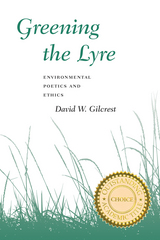
This work covers important and neglected ground—environmental language theory. Gilcrest poses two overarching questions: To what extent does contemporary nature poetry represent a recapitulation of familiar poetics? And, to what extent does contemporary nature poetry engage a poetics that stakes out new territory? He addresses these questions with important thinkers, especially Kenneth Burke, and considers such poets as Frost, Kunitz, Heaney, Ammons, Cardenal, and Rich.

This book is the first comprehensive analysis of the thought of Ignacio Ellacuría, the Jesuit philosopher-theologian martyred for his work on behalf of Latin America's oppressed peoples.
While serving as president of the Jesuit-run University of Central America in the midst of El Salvador's brutal civil war, Ellacuría was also a prolific writer. His advocacy on behalf of the country's persecuted majority provoked the enmity of the Salvadoran political establishment. On November 16, 1989, members of the Salvadoran military entered the university's campus and murdered Ellacuría, along with five other Jesuit priests and two women.
Kevin F. Burke, SJ, shows why Ellacuría is significant not only as a martyr but also as a theologian. Ellacuría effectively integrated philosophy, history, anthropology, and sociopolitical analysis into his theological reflections on salvation, spirituality, and the church to create an original contribution to liberation theology.
Ellacuría's writings directly address one of the most vexing issues in theology today: can theologians account for the demands arising from both the particularity of their various social-historical situations and also the universal claims of Christian revelation? Burke explains how Ellacuría bases theology in a philosophy of historical reality—the "ground beneath the cross"—and interprets the suffering of "the crucified peoples" in the light of Jesus' crucifixion. Ellacuría thus inserts the theological realities of salvation and transcendence squarely within the course of human events, and he connects these to the Christian mandate to "take the crucified peoples down from their crosses." Placing Ellacuría's thought in the context of historical trends within the Roman Catholic Church, particularly Vatican II and the rise of liberation theology in Latin America, Burke argues that Ellacuría makes a distinctive contribution to contemporary Catholic theology.

READERS
Browse our collection.
PUBLISHERS
See BiblioVault's publisher services.
STUDENT SERVICES
Files for college accessibility offices.
UChicago Accessibility Resources
home | accessibility | search | about | contact us
BiblioVault ® 2001 - 2024
The University of Chicago Press









